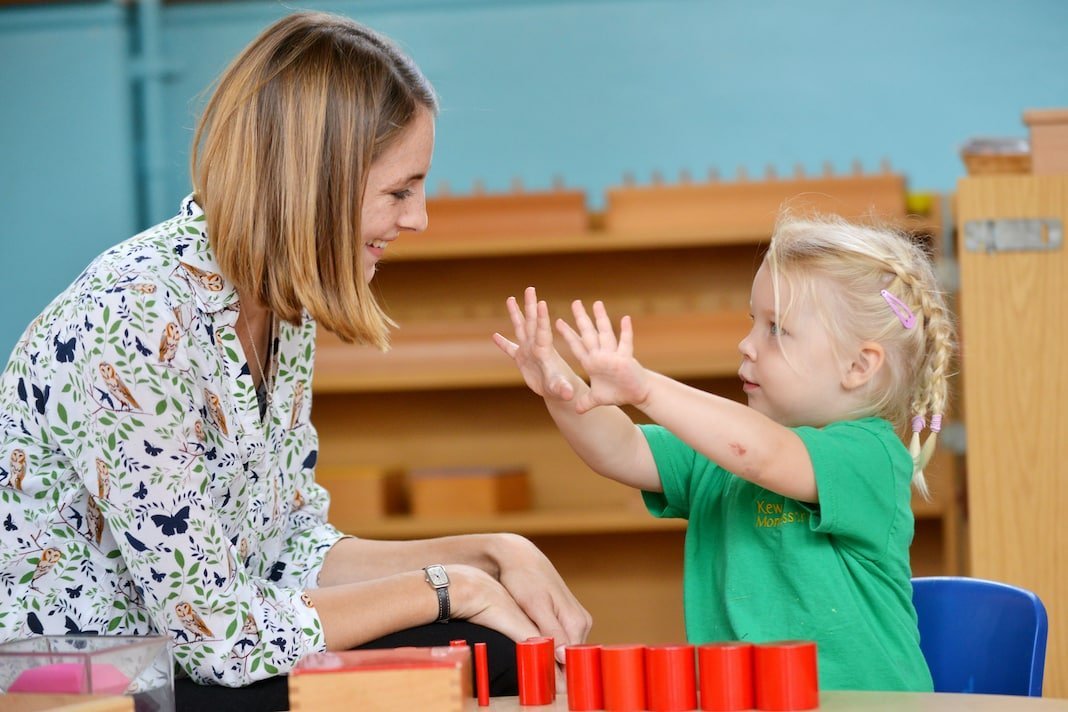Aimee Kimbell, Principal of Riverside Nurseries and the new Little Dukes Training Academy, says that if we get the early years right, everything else will look after itself
I know how important early years education is. I have seen first-hand how children flourish and grow in the right surroundings, and with the right support. But a good early years education does so much more than help a child to grow in the here and now – it is sowing the seeds for the adult that this child will become.
A child’s first years have an extraordinary impact on the rest of their life and the foundations of a healthy, happy adult are laid in our nursery classrooms. Neurological research in the past few decades has proven that our experience in early childhood – from pregnancy up to five years old – has implications for our development that go far beyond our physical abilities. Indeed, investing in the early years doesn’t just make sense for parents, it is one of the best ways to ensure the long-term health, wellbeing and happiness of us all. As the Duchess of Cambridge, an early years champion, recently said: “The early years are not simply about how we raise our children. They are about the society we will become”.
There are various approaches to early years education – I discovered Montessori some 15 years ago and my belief in its child-centred approach has strengthened ever since. I believe that Montessori not only offers the best possible outcomes for young children but that, with the right training, a Montessori guide can change a child’s future. So, I am pleased that early years education – in no small part due to the efforts of The Duchess of Cambridge – is finally getting the attention it deserves.

From last September the revised Early Years Foundation Stage (EYFS) framework began being introduced. The changes that have been made to this statutory framework reflect the Government’s recognition of how important early years education is. There is, for example, an emphasis on the need for a clear curriculum (which Montessori settings have). Priority has also been given to a thorough developmental assessment at two years of age to ensure early intervention occurs should any delays be found. (This is particularly important, given the impact of Covid on lost learning.) What’s more, there is more space for professional judgements to be made, highlighting the need for the educators working with this age group to be thoroughly knowledgeable about the developmental stages and how to best support children through them.
“As the Duchess of Cambridge recently said: ‘The early years are not simply about how we raise our children. They are about the society we will become'”
We introduced our own changes last autumn. Little Dukes, the nursery arm of Dukes Education, opened the Little Dukes Training Academy (LDTA) in south-west London. This offers a range of early years training courses – including the first training for Montessori guides to care for children from birth up to age three. There is a very simple reason why we have opened LDTA. We want to attract and train the very best people and we want to foster and encourage educators who will establish a gold standard of early years education. We believe it is that important. By training early years educators ourselves, we ensure that we have the very best staff. More than that, we ensure the best possible nursery teaching and provision for Little Dukes – both now and in years to come.
The foundations of a healthy, happy adult life are laid in our nursery classrooms. Children’s futures – and our future as a society – can be shaped by what we do today. I truly believe we have the power to make that difference.
Little Dukes dukeseducation.com
Further reading: Aimee Kimbell on the benefits of the Montessori Method
You may also like...






























